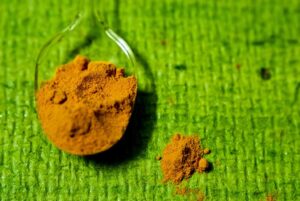I’ve always been fascinated by the power of natural remedies, and turmeric for psoriasis is no exception. This vibrant spice, well-known for its culinary uses, is making waves in the health community for its potential to soothe psoriasis symptoms. With its anti-inflammatory properties, turmeric offers a beacon of hope for those seeking alternatives to conventional treatments.
Recent studies have shed light on turmeric’s efficacy in managing psoriasis, both topically and orally. From adding a golden touch to your meals to creating soothing pastes and baths, turmeric’s versatility is unmatched. Join me as we delve into the science behind turmeric’s benefits for psoriasis and explore how this ancient remedy can be part of modern healing practices.
Benefits of Using Turmeric for Psoriasis
Exploring the potential of turmeric as a natural remedy for psoriasis has been an enlightening journey for me. Having dived deep into research and various studies, I’ve discovered compelling evidence supporting the effectiveness of this golden spice. Let’s delve into how turmeric can benefit those battling psoriasis.

Anti-inflammatory Properties
One of the key reasons I recommend turmeric for psoriasis relief is its powerful anti-inflammatory properties. Psoriasis is an autoimmune disease characterized by excessive skin inflammation and the rapid growth of skin cells leading to psoriatic skin lesions. Turmeric, or more specifically, curcumin, the active component in turmeric, can significantly reduce inflammation. The inhibition of phosphorylase kinase activity, which correlates with the severity of psoriasis, suggests that curcumin effectively treats psoriasis by curbing inflammatory responses. This is further evidenced by clinical trials indicating that both oral curcumin and topical therapy can mitigate psoriasis symptoms, offering a promising alternative to conventional treatments.
Antioxidant Effects
Another fascinating aspect of turmeric that I’ve learned about is its antioxidant effects. These abilities contribute to its potential in treating psoriasis. Oxidative stress plays a role in psoriasis pathogenesis, and curcumin’s ability to scavenge free radicals and enhance the body’s own antioxidant defenses can be particularly beneficial. By countering oxidative stress, curcumin supplements or turmeric formulations (like turmeric powder, turmeric tea, or topical turmeric microemulgel) help to maintain skin health and reduce the severity of psoriasis outbreaks.
Wound Healing Properties
Lastly, the wound healing properties of turmeric have profound implications for people with psoriasis, especially those suffering from plaque psoriasis or severe psoriasis vulgaris. Psoriatic skin lesions often lead to compromised skin that’s prone to injury and infections. Turmeric’s antimicrobial and wound-healing benefits aid in the faster recovery of these lesions. It promotes the repair of damaged skin tissue and accelerates the healing process, making it a beneficial addition to the regimen of anyone looking to manage psoriasis. Traditional medicine, including traditional Chinese medicine and Ayurveda, has utilized turmeric (Curcuma longa) for its healing properties, and modern science is beginning to understand and support these uses.
Through my research, it’s become evident that turmeric offers a multi-faceted approach to managing psoriasis. From its anti-inflammatory and antioxidant properties to its ability to aid in wound healing, incorporating turmeric into one’s psoriasis treatment plan could potentially lead to significant improvements in symptoms and overall skin health.
Ways to Use Turmeric for Psoriasis
Exploring natural remedies for psoriasis relief has led me to the golden spice, turmeric. Known for its anti-inflammatory properties, turmeric stands out as a promising solution for treating psoriasis. In this part of the article, I’ll delve into practical ways to incorporate turmeric into your psoriasis management routine.
Turmeric Paste
One of the simplest yet effective forms of using turmeric is creating a Turmeric Paste. By mixing turmeric powder with water and simmering it until it forms a thick paste, you have a powerful topical application at your fingertips. Psoriatic skin lesions often come with skin inflammation and irritation, but applying this paste directly to the affected areas can provide significant psoriasis relief. I’ve found that regular application over a few weeks noticeably reduces the severity and appearance of these lesions.
Additionally, for those dealing with scalp psoriasis, applying a thinner version of this paste to the scalp can soothe irritation and scaling. Remember, while turmeric is excellent for skin health, it may temporarily stain the skin, so it’s advisable to use it at times when you can allow the color to wear off naturally.
Turmeric Supplements
Beyond topical treatments, oral curcumin, the main active compound in turmeric, can be a game-changer for psoriasis relief. Turmeric Supplements are readily available and provide a concentrated dose of curcumin’s anti-inflammatory properties. These supplements can help manage the systemic inflammation that underlies psoriasis, potentially reducing the overall severity of the condition.
Clinical evidence supports the efficacy of curcumin supplements in managing psoriasis symptoms. One study suggested that alongside conventional treatments, curcumin supplements could effectively reduce the inflammation and skin cell growth associated with psoriasis. However, it’s crucial to consult with a healthcare provider before starting any new supplement, especially to ensure it doesn’t interfere with existing medications.
It’s fascinating to see how a component of traditional medicine and traditional Chinese medicine is making strides in modern-day psoriasis treatment. The blend of using Turmeric Paste for immediate topical relief and Turmeric Supplements for systemic support offers a comprehensive approach to managing psoriasis. While clinical trials and research continue to explore the full scope of turmeric’s benefits, the anecdotal and preliminary clinical evidence does provide hope for those seeking natural remedies to treat psoriasis.
Potential Side Effects of Using Turmeric for Psoriasis
When exploring natural remedies for psoriasis relief, it’s vital to consider both the benefits and potential side effects. Turmeric, celebrated for its anti-inflammatory properties, has garnered attention for its role in treating psoriasis and improving skin health. However, like any treatment, it’s important to be aware of possible adverse effects.
Firstly, while turmeric is generally recognized as safe for most people, applying turmeric topically or consuming turmeric supplements may result in skin irritation or allergic reactions in sensitive individuals. This reaction can manifest as a rash or itchiness, especially in areas where the skin might be broken or particularly sensitive, such as with scalp psoriasis.
In the realm of oral consumption, turmeric supplements, often taken for their curcumin content, can cause gastrointestinal issues in some individuals. These issues can range from mild discomfort, such as bloating and gas, to more severe effects like indigestion or diarrhea. This aspect is particularly crucial for individuals with underlying conditions such as inflammatory bowel disease, as turmeric could potentially exacerbate symptoms.

Another consideration involves the interaction of turmeric with conventional treatments and medications. Turmeric’s strong anti-inflammatory effects can interfere with the action of certain drugs, especially blood thinners and medication for diabetes. This interaction could lead to complications, underscoring the necessity of consulting a healthcare provider before incorporating turmeric into a psoriasis management plan.
While clinical trials and traditional medicine both support the use of turmeric for its health benefits, it’s imperative to approach its use with caution. Monitoring one’s response to turmeric, whether as a topical therapy or oral curcumin supplements, is crucial in avoiding adverse effects and ensuring the safe integration of this natural remedy into a comprehensive treatment strategy for psoriasis.
Exploring natural remedies like turmeric for managing psoriasis can be a promising avenue, but it’s essential to tread carefully. My deep dive into the benefits and risks has shown that while turmeric holds potential, it’s not without its drawbacks. I’ve learned the importance of balancing enthusiasm with caution, especially when considering its interactions with medications and the possibility of side effects. Consulting a healthcare provider before making any changes to your treatment plan is crucial.
I’m optimistic about the role turmeric could play in a holistic approach to psoriasis, provided it’s used wisely and under professional guidance. Remember, managing psoriasis is a personal journey, and what works for one might not work for another. Let’s keep an open mind and continue to share our experiences and insights, fostering a supportive community in our quest for relief.
Frequently Asked Questions
What truly cures psoriasis?
Psoriasis has no cure, but treatments can alleviate symptoms. These may include topical, oral, or systemic medications. Even severe cases can be managed effectively.
Is turmeric good for plaque?
Yes, studies suggest turmeric toothpaste can reduce plaque and inflammation in gingivitis, helping treat and prevent further gum disease and cavities.
How many days does it take for turmeric to work on skin?
Immediate natural glow can be noticed with turmeric use, but skin tone lightening usually requires consistent application for three to four weeks.
What is the best natural supplement for psoriasis?
Effective natural supplements for psoriasis include Fish Oil, Vitamin D, Folic Acid, Selenium, and Shark Cartilage, each contributing to symptom relief.
What deficiency causes psoriasis?
Research connects low vitamin D levels to severe psoriasis, as vitamin D promotes healthy keratinocyte growth, which is disrupted in psoriasis.

